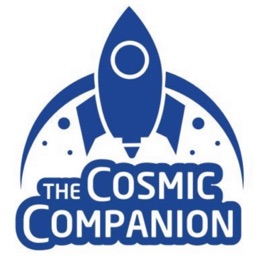
Advertise on podcast: The Cosmic Companion - Astronomy, Space, Technology Advancing Humanity
Rating
5 from
Country
This podcast has
208 episodes
Language
Explicit
No
Date created
2019/10/23
Average duration
26 min.
Release period
17 days
Description
Astronomy, space, and science news and education delivered in a fun, friendly format! Short form Astronomy Minutes and full-length episodes featuring interviews with some of the top scientists, authors, and developers around the globe! thecosmiccompanion.substack.com
Social media
Check The Cosmic Companion - Astronomy, Space, Technology Advancing Humanity social media presence
Podcast episodes
Check latest episodes from The Cosmic Companion - Astronomy, Space, Technology Advancing Humanity podcast
Jaws, Claws, Life, and Death w/ Jennifer Szymanski, Nat Geo Kids
2024/02/11
Hello Everyone! Welcome back to The Cosmic Companion.
This week, we’re talking about Jaws, Claws, Life and Death, and what they can teach us about staying alive in space! In a little bit, we’re going to be talking with Jennifer Szymanski from Nat Geo Kids about their new book, Deadliest Animals on the Planet.
But first, the boring bit of the show with me in it...
This is a public episode. If you’d like to discuss this with other subscribers or get access to bonus episodes, visit thecosmiccompanion.substack.com/subscribe
more
The Inside Story on Planets with Sabine Stanley, Planetary Physicist, Johns Hopkins University
2023/12/09
We get the inside scoop on planets from famed 1940s space reporter James G. Maynard, talking with the planets themselves, together with Sabine Stanley of Johns Hopkins University.
This is a public episode. If you’d like to discuss this with other subscribers or get access to bonus episodes, visit thecosmiccompanion.substack.com/subscribe
more
Exploring Exploration: with Jon Waterman, Atlas of Wild America, National Geographic
2023/11/04
Hello everyone!
This week on The Cosmic Companion, we explore exploration, exploring the human need to… explore. Later in the show, we’ll be talking with Jon Waterman, creator of Atlas of Wild America from National Geographic.
From the dawn of time, humans have been driven by a primal urge: the need to explore. This innate curiosity has shaped our history, propelling us from the confines of caves to the vast expanse of our planet, and beyond.
Let’s take a detour down memory lane. Somewhere between 75,000 and 50,000 years ago, a group of mobile Homo sapiens decided to take humankind’s first road trip out of Africa. Even without roads. Talk about wanderlust! This migration wasn’t just a change of scenery — it resulted in a monumental shift for our species, shaping human evolution.
Jon Waterman appears on The Cosmic Companion 4 November 2023. Creative Commons 4.0 Attribution 2023 The Cosmic Companion.
And who could forget the Ancient Greeks and Phoenicians? They were among the original sea-faring explorers, navigating the Mediterranean long before GPS and Google Maps.
Wait. [HOLD EARBUD] I’m getting a notification that we have a surprise guest on the show this week. Yes, (is this real? are you sure, Max? Wow. Ok.) Everyone, in a special chronophone interview from 330 BCE, please welcome famed navigator, astronomer, and all-around curious fellow, Pytheas.
—
χαίρετε! Name’s Pytheas. I’m just your average merchant from Massilia… what? Oh, it’s somewhere in what you would call the Provence region of southern France.
Anyway, I’ve always had this thing for stories. The wilder, the better. [FULL OPEN] More than 23 centuries before your time, I heard tales of mythical lands, strange creatures, and seas that stretch beyond the horizon. Most folks just dismissed them as sailor’s yarns. No, no. That’s a thing. You’d be surprised how many sailors enjoy macrame…
But me? Hearing these stories, I thought, “Why not go check out these legends for myself?” So, I packed my bags and set sail.
Now, let me tell you, sailing the Mediterranean is a piece of honey cake. But the Atlantic? That’s a whole different kettle of fish. Literally. The fish are different. Heh heh. Fish…
Anyway, there I was, circumnavigating the land you call Britain, or as it went by in its youth, Britannia. I always had a knack for astronomy, and I even figured out the North Star isn’t exactly north. Also, I realized that the Moon plays a role in tides. Good to know when you’re spending months or years at sea.
But I wasn’t on the boat all the time. I also got to walk around parts of Britannia, including the legendary tin mines of Cornwall. The people there call themselves the Briton Celtics. I didn’t even know they played basketball.
But, up north, the real highlight was the midnight sun. Imagine this: it’s the middle of the night, but the sun is still shining brightly. Great for getting more science done, if not for sleeping outdoors.
So there you have it. I’m just a regular guy on an extraordinary journey. Not only did I prove legends of northern Europe true, but I also wound up with a good story or two to tell.
Any idea where I can hitch a ride on a rocket?
—
Maritime voyages of Ancient Greeks and Phoenicians not only expanded their trade routes but also led to advancements in astronomy, geography, and navigation. Talk about making waves!
Then there was Marco Polo, the original globetrotter. [ARE WE TALKING BASKETBALL AGAIN?] His travels to Asia were like the ultimate vacation slideshow, except instead of awkward family photos, he brought back tales of exotic lands and cultures that blew everyone’s medieval minds.
[MARCO POLO: Dude. I LITERALLY hung out with Kublai Kahn in Xanadu. No way you’re going to top that!]
And let’s not forget about those brave souls who dared to explore the icy wilderness of Antarctica and the towering heights of Mt. Everest. These explorers faced harsh
more
HALLOWEEN SPECIAL: The Top 10 Ways Space is Trying to Kill You! w/ Ethan Siegel, Starts with a Bang!
2023/10/28
HAPPY HALLOWEEN EVERYONE! (I mean, BOO!)
This week on The Cosmic Companion, for our Halloween Special, we’ll be looking at The Top 10 Ways Space is Trying to Kill You! Later in the show, we’ll be talking with astrophysicist and science educator Ethan Siegel, host of Starts with a Bang!
This is a public episode. If you’d like to discuss this with other subscribers or get access to bonus episodes, visit thecosmiccompanion.substack.com/subscribe
more
Seeing the Invisible w/ Anand Varma, Invisible Wonders, Nat Geo
2023/10/21
Hello Everyone!
This week on The Cosmic Companion, we are Seeing the Invisible. We’ll be discussing how astronomers study objects in space which are invisible to the human eye.
Later on, we will be talking with Anand Varma, creator of a new book, Invisible Wonders: Photographs of the Hidden World, from National Geographic.
This is a public episode. If you’d like to discuss this with other subscribers or get access to bonus episodes, visit thecosmiccompanion.substack.com/subscribe
more
Global Warming - It's Not Just Hot Air! w/ Elizabeth Rusch, The 21
2023/10/14
Global warming and climate change is happening all around us. We look at the science of climate change, talking with Elizabeth Rusch, author of The 21.
---
This week on The Cosmic Companion, we look at Global Warming - It's Not Just Hot Air! We will be talking with Elizabeth Rusch, author of The 21.
Climate change, the ultimate uninvited guest, has been making itself quite comfortable lately. It's like that distant cousin who shows up unannounced, cranks up the heat, and then leaves the door open.
The science behind global warming is as fascinating as it is concerning.
Since the Industrial Revolution, we've been burning fossil fuels like a barbecue at a Texas tailgate party, releasing greenhouse gases into the atmosphere...
This is a public episode. If you’d like to discuss this with other subscribers or get access to bonus episodes, visit thecosmiccompanion.substack.com/subscribe
more
Greece is the Word: How science was born: With Kenny Curtis and Jillian Hughes, Greeking Out, Nat Geo Kids
2023/10/07
Hello everyone! This week on The Cosmic Companion, we are pondering why Greece is the Word, discussing the birth of science in the ancient world, and what it means for us today.
Later on, we'll be talking with Kenny Curtis and Jillian Hughes, hosts of the Greeking Out podcast, and authors of a new book of the same name, from Nat Geo Kids.
Once upon a time, in the sunny lands of Ancient Greece more than 25 centuries ago, a bunch of curious folks decided to ask some big questions. "Why does the sun rise?" "What are stars?" "Why do planets move?". They were tired of attributing everything to the whims of gods. Much like overgrown toddlers, they wanted ANSWERS, and they wanted them NOW! (errr… then)...
Jillian Hughes and Kenny Curtis appear on The Cosmic Companion 7 October 2023. Creative Commons 4.0 Attribution 2023 The Cosmic Companion
The Greeks had a knack for asking questions that were way ahead of their time. More than 2,500 years before our age, a woman named Aspasia was known for holding gatherings of some of the greatest minds of her day, including Plato and Socrates. A gifted conversationalist, tales tell that she founded a school for girls, a groundbreaking advance for the era.
Democritus of Abdera had the crazy idea that all matter was composed of individual bits, which we call atoms. Building on the work of his mentor, one day around 425 BCE, he may have just been walking around, minding his own business when he thought, "What if everything is made up of tiny, invisible particles?" Boom! The concept of atoms was born.
Then there was Pythagoras who had a thing for triangles. He may have been sitting around one day, doodling triangles in the sand when he realized that the square of the hypotenuse (the side opposite the right angle) is equal to the sum of the squares of the other two sides. Mind blown! And thus, the Pythagorean theorem came into existence.
During the 4th Century BCE, Hippocrates took one look at medicine and said, "This needs some work."
[Not my words exactly, but… Yeah, sure.]
He insisted that diseases were not punishments from angry gods but had natural causes that could be studied and treated. This revolutionary idea paved the way for modern medicine.
Not long after, Agnodice of Athens practiced medicine dressed as a man, at a time when women were not allowed to be doctors. Thanks to her, laws in Athens preventing women from becoming doctors were overturned.
[AGN: You're welcome!]
But it wasn't all work and no play for these ancient scientists. Legend has it that Archimedes discovered his principle while taking a bath. He noticed that the water level rose as he got into his tub and realized this could be used to determine volume. He was so excited that he ran through the streets naked shouting "Eureka!" (which means "I found it!"). Now that's what I call a eureka moment!
The birth of science in ancient Greece is a story of curiosity, ingenuity and occasional naked sprinting through the streets. The ancient Greeks might not have had all the answers, but they sure knew how to ask interesting questions!
With questions come answers, and for a few of each, we're talking with Jillian Hughes and Kenny Curtis about their new podcast and book, Greeking Out, from Nat Geo Kids.
---
Now. Let's talk about our friend Pythagoras. Remember him? The triangle guy? Well, his theorem is still used today in everything from architecture to video games. Yes, you heard it right! Every time you play a game of Fortnite or Minecraft, Pythagoras is there, making sure everything looks just right.
Next up is Hippocrates, the father of modern medicine. His idea that diseases have natural causes was a game-changer. Today, doctors across the globe follow his principles. So, the next time medicine helps you out, remember to say a silent thank you to Hippocrates (but maybe skip on the leeches and bloodletting).
And who could forget Archimedes? His principle helps us design ships and submarines. And yes, he's also the
more
Designing Dinosaurs with Stephanie Warren Drimmer, National Geographic
2023/09/30
This week on The Cosmic Companion, we look at Designing Dinosaurs. How do we know details about dinosaurs that are not readily apparent from the fossil record? How can we tell what we can tell about the colors, sounds, and behaviors of these magnificent little beasties?
Later in the show, we are going to talk with Stephanie Warren Drimmer from National Geographic about her new book, Jurassic Smarts.
Fossils, including those of dinosaurs, have been known about since ancient times. These findings led to legends of dragons, cyclopseseseses, and at least one odd guess at giant humans...
This is a public episode. If you’d like to discuss this with other subscribers or get access to bonus episodes, visit thecosmiccompanion.substack.com/subscribe
more
Artificial Intelligence and the Future of the Human Race w/ Neil deGrasse Tyson
2023/09/17
This week on The Cosmic Companion, we’re discussing Artificial Intelligence and the Future of the Human Race. Later on, we are talking with one of your species more impressive information processing and dissemination units, Neil deGrasse Tyson.
This is a public episode. If you’d like to discuss this with other subscribers or get access to bonus episodes, visit thecosmiccompanion.substack.com/subscribe
more
It's a Weird World, After All! with Kathryn Williams, Nat Geo Kids
2023/09/09
This week on The Cosmic Companion, we’re talking about how It’s a Weird World, After All! Later in the show, we’re going to talk with Kathryn Williams about Weird but True! World 2024, new from National Geographic Kids!
This is a public episode. If you’d like to discuss this with other subscribers or get access to bonus episodes, visit thecosmiccompanion.substack.com/subscribe
more
Gravity - a Weighty Subject! with Joe Swiggum, NanoGrav Collaboration
2023/08/19
This week on The Cosmic Companion, we take on a weighty subject — gravity. Later in the show, we are going to talk with Joe Swiggum from the NanoGrav Collaboration.
Gravity is one of those things that we all know about, but when you really stop to think about it, it’s pretty mind-boggling. I mean, there’s this invisible force that keeps us all stuck to the ground and makes things fall when we drop them. How wild is that?
This is a public episode. If you’d like to discuss this with other subscribers or get access to bonus episodes, visit thecosmiccompanion.substack.com/subscribe
more
Exploring Dark Matter and Dark Energy w/ René Laureijs, Euclid Project Scientist, European Space Agency
2023/08/12
This week on The Cosmic Companion, we talk about the mysteries of Dark Matter and Dark Energy. Later in the show, we will be joined by René Laureijs, Euclid Project Scientist, from The European Space Agency.
If one were to look at all the matter and energy in the Universe, about 68% is dark energy, 27% is dark matter, and just five percent is everything we see around us. 95% of everything out there — is totally unknown.
[That’s chicken feed. What IS most of the Universe?] Good question!
This is a public episode. If you’d like to discuss this with other subscribers or get access to bonus episodes, visit thecosmiccompanion.substack.com/subscribe
more
Podcast reviews
Read The Cosmic Companion - Astronomy, Space, Technology Advancing Humanity podcast reviews
Bruce Chamoff
2022/12/15
Very educational and fun podcast on astronomy!
I never knew learning about astronomy was so fun. James is a very professional and experienced podcast host and makes it easy to find out about stars,...
more
GinoBoyee
2022/06/16
Wicked Fun
I love your interviews, James!
I can’t give you five stars only because I’m not hung-ho about space travel. (I’m a bit of a Luddite) I believe that a...
more
Podcast sponsorship advertising
Start advertising on The Cosmic Companion - Astronomy, Space, Technology Advancing Humanity & sponsor relevant audience podcasts
You may also like these astronomy Podcasts
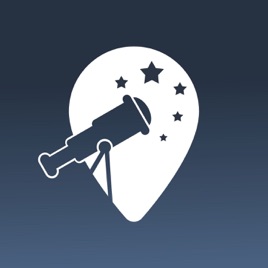
4.5
2
37
Meet Star Gazers
Sujay Patil
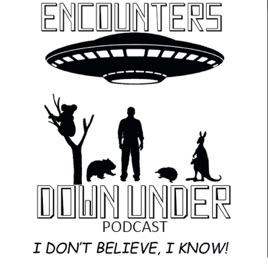
5
2
79
Encounters Down Under
Anthony Goodall
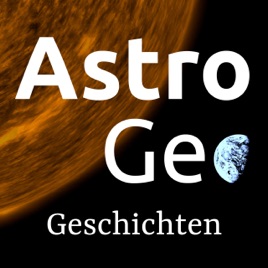
2
1
82
AstroGeo
Karl Urban und Franziska Konitzer
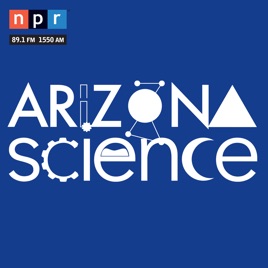
3.5
2
403
Arizona Science
AZPM
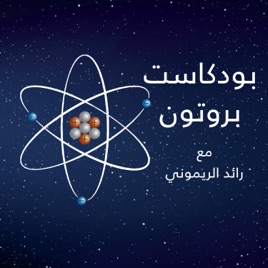
5
1
6
Proton | بروتون
صدى بودكاست

5
37
150
Good Heavens! The Human Side of Astronomy
goodheavens
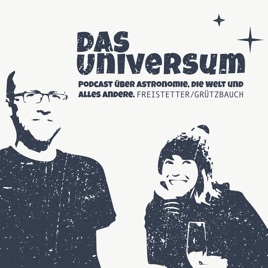
4.8
8
98
Das Universum
Florian Freistetter, Ruth Grützbauch, Evi Pech
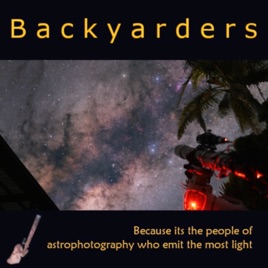
0
0
12
B a c k y a r d e r s
@sa_astro
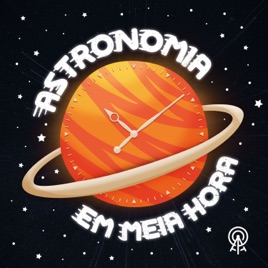
0
0
82
Astronomia em Meia Hora
AGÊNCIA DE PODCAST
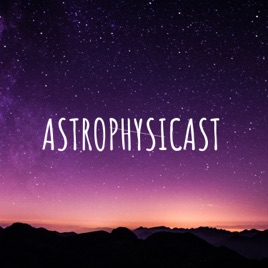
5
1
58
ASTROPHYSICAST
Team ASTROPHYSICAST




